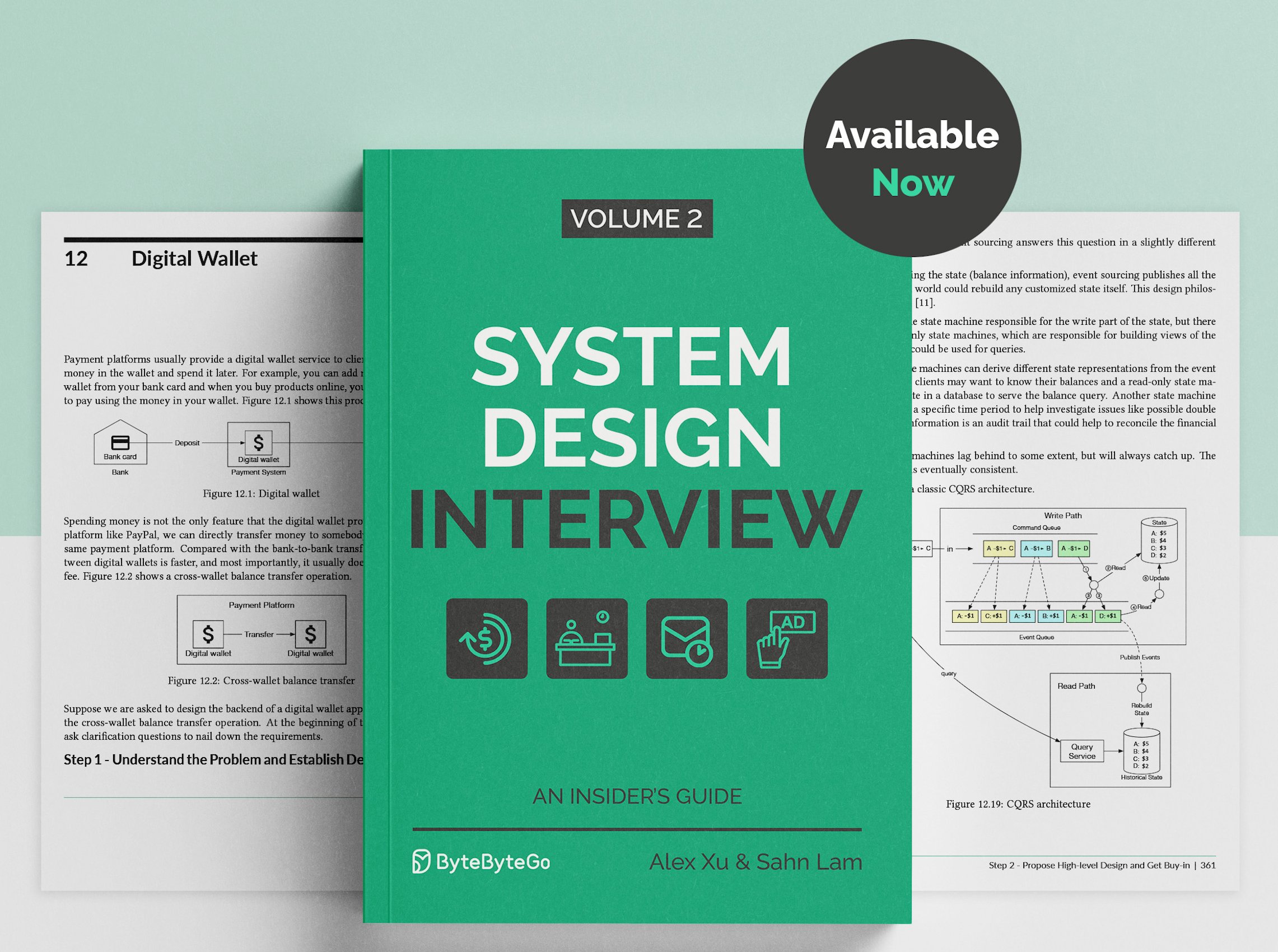Imagine this: you’re sitting across from a panel of seasoned engineers, heart pounding as they ask you to design a system that can handle a billion users and a million requests per second. This, dear friends, is the dreaded system design interview, a rite of passage for aspiring software engineers. And if you’re feeling overwhelmed, you’re not alone. Thankfully, there’s a beacon of hope in the form of Alex Xu’s renowned “System Design Interview” PDF.

Image: design.udlvirtual.edu.pe
This guide isn’t just some dry tech document; it’s your trusted companion for navigating the intricate world of system design. Whether you’re a fresh graduate or a seasoned developer aiming to level up, Alex Xu’s insights are invaluable. This article delves into the brilliance behind his PDF, exploring why it’s become a go-to resource for aspiring engineers across the globe.
The System Design Interview: A Battleground of Brains
The system design interview isn’t about memorizing algorithms or syntax. It’s about demonstrating your ability to think critically, creatively solve problems on a grand scale, and build robust, scalable systems. It’s a chance to showcase your architectural prowess, your understanding of trade-offs, and your ability to effectively communicate your ideas.
Alex Xu’s PDF is designed to equip you with the tools you need to excel in this challenging interview environment. It’s packed with practical advice, real-world examples, and a structured approach that empowers you to confidently tackle any system design question thrown your way.
Deconstructing the System Design Interview
Alex Xu’s guide doesn’t simply offer generic solutions; it delves into the nuances of the system design interview process. It starts by breaking down the core components of any system design question:
- Requirements Gathering: At the heart of any successful system design is a deep understanding of the requirements. Alex Xu emphasizes the importance of asking clarifying questions to understand user needs, expected traffic, desired latency, and other critical factors.
- Conceptual Design: This involves sketching out a high-level design, identifying key components, defining interfaces, and establishing the core architecture. Alex Xu provides insightful frameworks, such as the “CAP theorem,” which helps you make informed decisions about consistency, availability, and partition tolerance.
- Detailed Design: Diving deeper, you need to specify how each component will function, including data structures, algorithms, and potential trade-offs. Alex Xu’s guide equips you with the knowledge to choose the right tools for the job, such as databases, caching mechanisms, and message queues.
- Evaluation and Trade-offs: No system is perfect, and Alex Xu stresses the importance of evaluating your design based on factors like cost, performance, security, and scalability. He emphasizes the need to articulate the trade-offs you’ve made and justify those decisions.
Unlocking the Secrets of System Design
Alex Xu doesn’t simply guide you through the interview process; he delves into the underlying principles of system design. He explores topics like:
- Distributed Systems: He demystifies the complexities of distributed systems, explaining concepts like consensus, replication, and fault tolerance. He also provides practical insights on designing systems that can handle the challenges of distributed environments.
- Scalability and Load Balancing: Understanding how to scale systems is crucial, and Alex Xu explores techniques like horizontal scaling, load balancing, and sharding. He also dives into the nuances of handling peak traffic and ensuring smooth performance.
- Databases and Data Structures: Choosing the right database is a critical decision, and Alex Xu provides guidance on selecting from a variety of options, including relational, NoSQL, and graph databases. He also explores essential data structures and algorithms often used in system design.
- Caching and Queues: He explains the benefits of using caching to improve performance and reduce server load. He also delves into the power of message queues for handling asynchronous tasks and decoupling components.

Image: thedevnews.com
Real-World Case Studies: Learning from the Masters
Alex Xu’s guide is packed with real-world case studies, each offering valuable lessons in system design. He takes you through the design of popular systems like Twitter, Uber, and YouTube, highlighting the challenges they faced and the solutions they implemented. This hands-on approach makes learning engaging and relatable.
Stepping Up Your Game: Actionable Tips
Beyond the theoretical framework, Alex Xu provides actionable tips to help you ace your system design interview:
- Practice, Practice, Practice: The more you practice designing systems, the more comfortable you’ll become.
- Study Common System Design Patterns: Familiarize yourself with popular patterns like microservices, load balancers, and data replication.
- Communicate Clearly and Effectively: Communicate your ideas clearly, using diagrams and whiteboard illustrations whenever possible.
- Be Prepared to Handle Ambiguity: Accept that you won’t always have all the answers. Be open to asking questions and clarifying requirements.
- Don’t Be Afraid to Say “I Don’t Know”: It’s better to admit limitations than to make false claims.
System Design Interview Alex Xu Pdf
The Power of Alex Xu’s Guide
Alex Xu’s “System Design Interview” PDF isn’t just a guide; it’s a roadmap to success. It equips you with the knowledge, frameworks, and practical tips needed to approach system design interviews with confidence. By learning the principles outlined in this guide, you’ll be well on your way to designing scalable, robust systems and impressing your interviewers.
If you’re serious about cracking system design interviews and solidifying your position as a sought-after software engineer, Alex Xu’s guide is a must-have tool. So, take the first step toward a brighter future, empower yourself with valuable knowledge, and embark on your journey to become a system design master.






